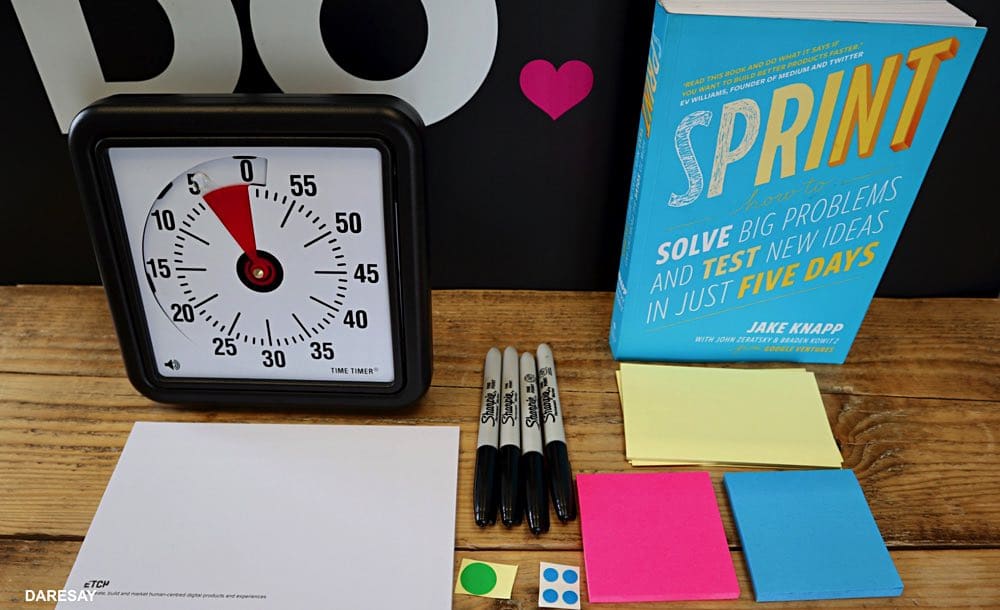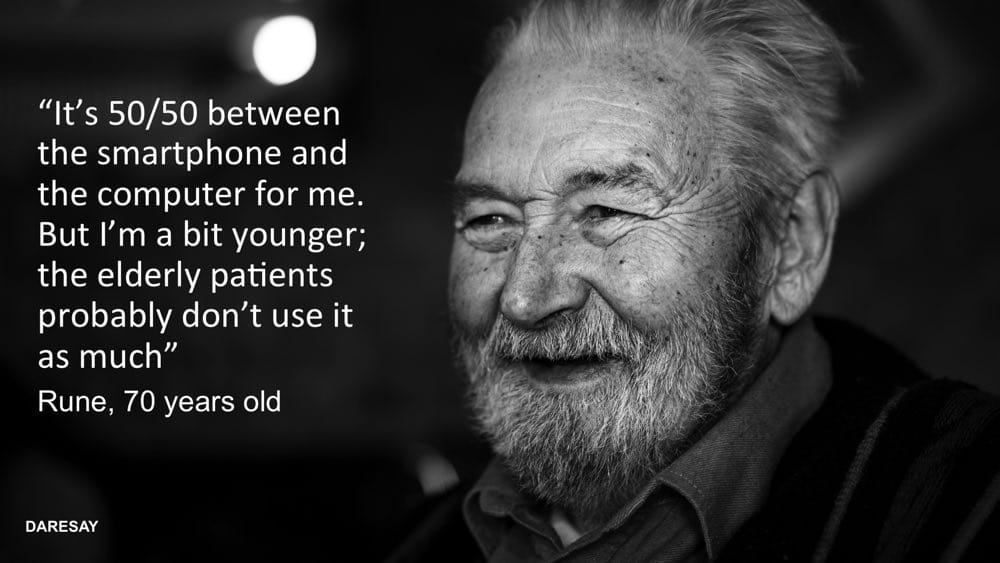Recap breakfast seminar: Sprinting for life
Our breakfast seminar “Sprinting for life” was a huge success. Tickets sold out quickly, and there was a long waiting list of people who wanted to be there. For those who couldn’t get in or who were there but want a recap of the event, here’s a summary of the seminar with pictures, and videos.
The Daresay breakfast seminar “Sprinting for life” took place on November 13th at the World Trade Centre in central Stockholm. Approximately one hundred and fifty decision makers from health care, banking and finance, insurance, tech, design and media gathered to listen to presentations about what can be achieved through Design Sprints and how to create better welfare in Sweden and the world using modern design methods.
Design sprints: the basics
The event kicked-off with an introduction to Design Sprints by Daniel Peterson, Daresay Design Director. Daniel described why you should consider doing a Sprint, what can be achieved during the week, and how you can make the most of your findings.
He finished off with the three key principles for Sprint success:
Firstly, your Sprint should “get in the way”, i.e., it should be held in the company’s lobby, or somewhere else where there is a lot of activity. Secondly, you should create a multidisciplinary Sprint team including at least one decision maker who has the mandate to take and follow through on decisions. Thirdly, everybody has to be able to think and act fast. Sprints are an explosive format, which require focus and the ability to generate and exclude ideas throughout the week.

Real-life Sprints
Next up was Daresay designer Sofia Hoff, who showcased a Daresay Design Sprint from the orthopaedic department at Södersjukhuset in Stockholm. During the sprint, they developed a digital tool that presents patients with the steps they have to take pre and post operation.
Sofia explained that they had to adapt to the nurses’ work situation. The team from Daresay had planned to conduct interviews with the nurses during their breaks, but they soon realised that staff rarely had time for scheduled breaks. In the end they decided to conduct the interviews in the staff kitchen, which is the centre of the nurses’ daily lives.
This is typical of what can happen in a Sprint. If you only have one week to deliver results you find workarounds to complete the necessary daily tasks.
Other Sprint cases were presented including Regional Cancer Centre Stockholm/Gotland, the Nobel Foundation, Clas Ohlson and Länsförsäkringar.

Finally, following on from our recent work together to develop Lev Friskt, Länsförsäkringar AB, Head of Innovation Niklas Huss, shared his thoughts and ideas on the future of healthcare. We will be publishing an article on this shortly.
